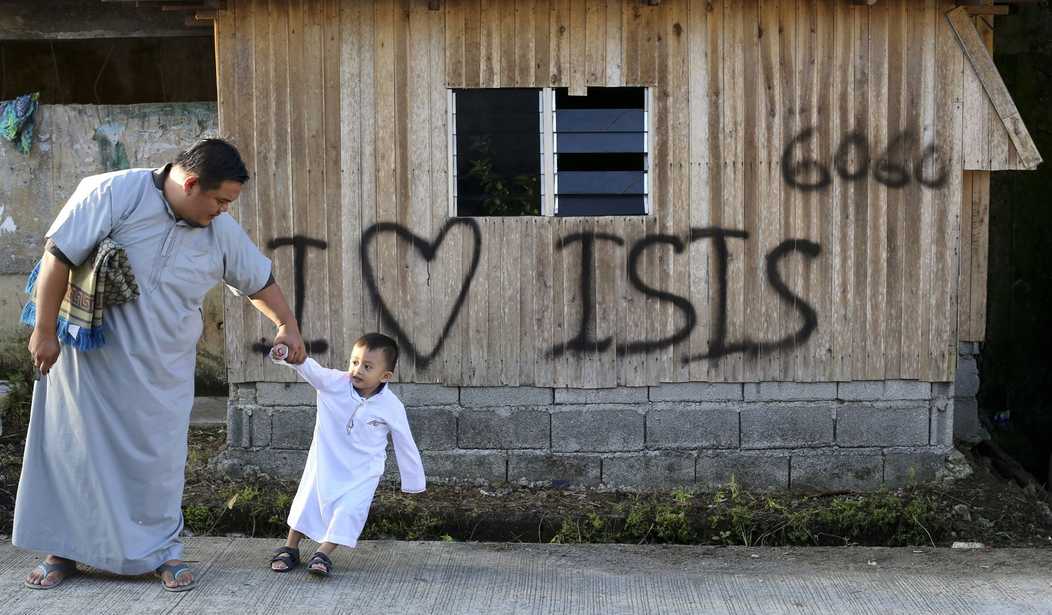In September, President Trump sternly warned Assad and his allies not to "recklessly attack Idlib Province,” one of the last areas not under control by Syrian President Bashar al-Assad’s regime. He continued, “The Russians and Iranians would be making a grave humanitarian mistake to take part in this potential human tragedy. Hundreds of thousands of people could be killed." In a September 10 op-ed for the Wall Street Journal, President Erdogan of Turkey warned that the Syrian regime could create a humanitarian catastrophe that would dwarf the horror it has already visited on Syria these past seven years: “We cannot leave the Syrian people to the mercy of Bashar Assad. The purpose of a regime offensive against Idlib would be indiscriminate attacks to wipe out its opposition—not a genuine or effective campaign against terrorism.”
Both leaders were spot on, and Assad and his ally Russia took notice. For now, that a catastrophe has been forestalled since Turkey has joined with Russia to create a buffer zone surrounding civilians, moderate opposition forces, and extremist groups—all of whom have been displaced to Idlib by the regime. The UN, the Trump Administration, and some on the ground have cautiously welcomed this attempt to disentangle the situation via a demilitarized zone, with an emphasis on helping civilians find safety.
The jury is out on whether Russia will uphold its promise to cease bombing civilians, given its bloody history on similar agreements, or how long Turkey will hold back Assad and Iranian-backed forces from launching a full-scale assault. One thing, however, is clear: it’s unlikely that Idlib falls in the immediate future. Given this, the agreement provides a real opportunity for the United States to pursue its national security objectives by increasing civilian resilience against extremism, mitigating suffering, and pursuing progress toward a “credible political solution” to the conflict, as Special Representative for Syria Jim Jeffrey told the UN.
Turkey has staked its claim on Idlib for now, but Assad says he will retake “every inch” of Syria. We should work with the Turks to repel his aggression and that of his allies, and support civil society against extremism.
The Trump Administration should reconsider its withdrawal of nearly $230 million in stabilization assistance to Syria. This was money set aside by Congress to clear rubble, remove landmines, and support the work of Syria’s local civilian councils, among other projects. The funding punches well above its weight. Prevention—bolstering civil society against the push and pull of extremists—is always cheaper than the cure. And cutting these funds will leave civil society and pro-democracy activists with even fewer tools to repel attacks from pro-Assad and jihadist forces.
Recommended
Assad has manipulated global focus on counterterror to his advantage. From the beginning of the crisis, Assad has portrayed the conflict as a struggle between a secular government and radical Islamist groups. To change the facts on the ground to suit its narrative, the Assad regime stoked sectarian tensions and targeted the moderate opposition while making groups like ISIS a secondary priority. Many Western audiences have fallen for Assad’s historical revisionism that paints him as the unsung warrior battling terrorists. In most cases, in fact, it’s civilians he’s targeted for destruction.
We see the result of Assad’s efforts in Idlib, where al-Qaeda and remaining ISIS cells have come to base their internationalized jihadist projects. Thanks to dwindling U.S. support, moderates and civil society groups who believe in democracy and human rights are left caught in the crosshairs.
The current policy decision doesn’t just jeopardize what leverage we have left in Syria—it actually empowers America’s enemies. If the Administration seeks to achieve its stated mission to destroy ISIS, it will require creating safety and stability, such that extremism cannot thrive.
President Trump’s allies on Capitol Hill, including Freedom Caucus Chair Mark Meadows, agree. In a letter to the Administration, they said the loss of funding "advantages al-Qaeda, ISIS, and their sympathizers" and "compounds the suffering of Syrian civilians." These fiscal hawks, joined by their Democratic colleagues, instead believe stabilization projects "bolster civilian efforts to build freedom, secularism, democracy, and resiliency against violent ideology."
Even if a Turkish-Russian agreement falls through and Assad eventually regains territorial control of Idlib, the United States—and the world—will confront jihadist threats from Syria for years to come. Evidence suggests that the regime will be unable to control recaptured areas or curb the influence of ISIS. Over the past year, the Assad regime has struggled to hold towns in Palmyra and Syria’s south when tested by remaining pockets of ISIS insurgents. This is unlikely to change, as Assad’s war crimes and his reliance on violent Iranian-backed sectarian militias, which form more than 80 percent of his ground forces, continue to stimulate ISIS and al-Qaeda recruitment. Assad will be further incentivized to allow Idlib’s open wound to fester, forgoing stabilization efforts in favor of driving millions of international counterterror dollars through his government, granting him financial stability and legitimacy. To stave off a long-term jihadist threat emanating from Syria, our country must take greater responsibility for its own security, working with the Syrian people through stabilization aid toward a future free from ISIS and Iran’s sectarian domination.
The United States has empowered its ally Turkey to stave off a massive humanitarian disaster in Idlib, but now it must follow through. President Trump, it’s not too late—let’s not sacrifice what influence we have left to protect civilians and U.S. national security. Syrians, who share our aspirations for freedom, depend upon it.
Erica Hanichak is Government Relations Director at Americans for a Free Syria (@AmFreeSyria), a non-partisan, non-profit that advocates for human rights, the rule of law and U.S. national security interests in Syria.

























Join the conversation as a VIP Member